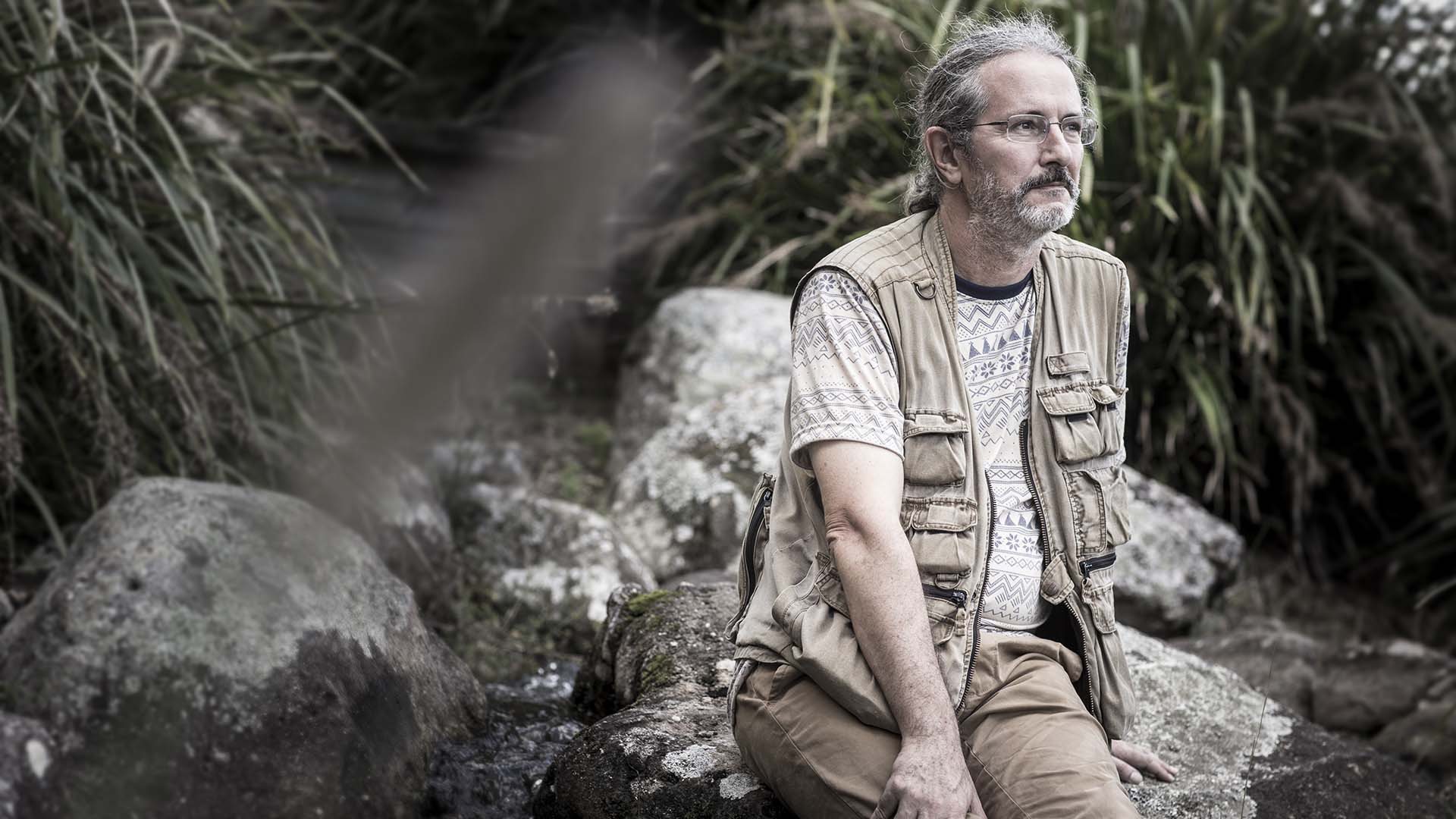May 7, 2021
Past humans not the cause of island extinctions
Study finds that arrival of humans on islands often had minimal impacts on biodiversity loss
An international team of researchers, including from the University of Wollongong (UOW), discovered the arrival of ancient humans to uninhabited islands doesn’t always lead to widespread extinctions as is often thought.
Published in Proceedings of National Academy of Sciences, the researcher team examined archaeological and paleontological records of all islands inhabited by humans over the last 2.6 million year, finding they weren’t always destructive agents and their arrival often had minimal impacts on biodiversity loss.
Archaeologists and palaeontologists who work on islands with prehistoric records met in 2017 and compared records of human arrival and extinctions on islands spanning the last 2.6 million years, finding very little overlap between the two events.
The research project was led by Associate Professor Julien Louys, from the Australian Research Centre for Human Evolution at Griffith University.
“We often have this picture that as soon as people arrive in a new ecosystem, they cause untold amounts of damage, but we found that this was only the case for the most recent human arrivals on islands,” he said
“Based on classic cases of island extinction from the more recent past, we expected that mass extinction should shortly follow island colonisation, however, when we examined the data, there were very few cases where this could be demonstrated.
“Even in cases where there was a close link between human arrival and island extinctions, these could not be disentangled from records of environmental change brought about by global climatic events and changing sea levels.”
Dr Gerrit van den Bergh from the UOW Centre for Archaeological Science participated in the project. He was responsible for compiling the faunal and hominin records for the Indonesian islands of Flores and Sulawesi.
“Both are oceanic islands, and to get to get there involved at least one sea crossing. This is a feat that Homo sapiens undoubtedly did by using watercraft, and the evidence is that these modern humans settled on the islands between 60,000 and 40,000 years ago,” Dr van den Bergh said.
“However, the evidence is also that pre-modern hominins arrived on these islands long before modern humans. In the case of Flores island, the fossil evidence shows that the ancestors of Homo floresiensis were present 700,000 years ago, and earlier finds of stone tools indicates they must have arrived more than 1 million years ago.
“The amazing thing is that during the long period since the initial arrival of early hominins, the faunal record is very stable – not much variation, and this is despite climatic fluctuations and explosive volcanism.
“However, once modern humans arrived some 42,000 years ago, things changed dramatically and the mega fauna – except for Komodo dragons – become extinct.”
The team also recorded several examples of human ancestor extinctions and instances where humans had to abandon islands.
“The unique ecological conditions that drive island extinctions definitely didn’t spare humans either,” said Professor Sue O’Connor of the Australian National University, the senior researcher on the study.
Island ecosystems are some of the most at risk in the world today and understanding the past impacts of people on these environments is critical for safeguarding them into the future.
“We show that the successful colonisation of islands does not necessarily require wholesale destruction of ecosystems,” Professor Louys said. “It is only more recently, with advanced technologies, translocation of exotic species, and human population increases that we begin to see massive detrimental effects of humans on island ecosystems.
“By studying the cases where people lived on islands for thousands of years without tipping these fragile ecosystems off balance, we might gain valuable insights into how they can be better managed today.”
ABOUT THE RESEARCH
‘No evidence for widespread island extinctions after Pleistocene hominin arrival’ by Julien Louys, Todd J. Braje, Chun-Hsiang Chang, Richard Cosgrove, Scott M. Fitzpatrick, Masaki Fujita, Stuart Hawkins, Thomas Ingicco, Ai Kawamura, Ross D. E. MacPhee, Matthew McDowell, Hanneke J. M. Meijer, Philip J. Piper, Patrick Roberts, Alan H. Simmons, Gerrit van den Bergh, Alexandra van der Geer, Shimona Kealy, and Sue O’Connor, is published in Proceedings of National Academy of Sciences (https://doi.org/10.1073/pnas.2023005118).
This project received funding from the Wenner-Gren Foundation, the Australian Research Council (ARC) and the ARC Centre of Excellence for Australian Biodiversity and Heritage.
